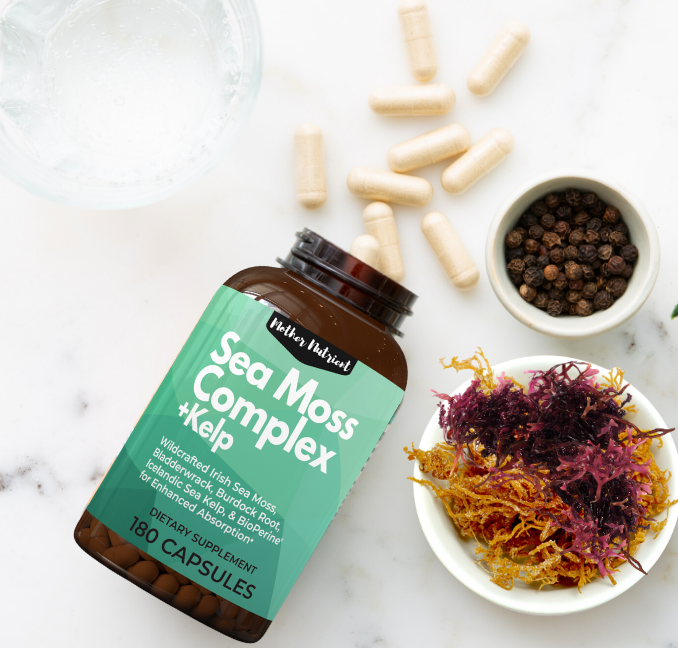
Have you been experiencing fatigue, changes in weight, or hair loss?

 Common symptoms of thyroid dysfunction include unexplained weight change, feeling fatigued or foggy, mood changes, or sensitivity to extreme temperatures. Many of these symptoms often overlap with pregnancy and postpartum, which is why it is important to be aware of them and see if you are at risk for thyroid issues.
Common symptoms of thyroid dysfunction include unexplained weight change, feeling fatigued or foggy, mood changes, or sensitivity to extreme temperatures. Many of these symptoms often overlap with pregnancy and postpartum, which is why it is important to be aware of them and see if you are at risk for thyroid issues.
 One common cause of thyroid issues is iodine deficiency. Iodine is a crucial nutrient for your thyroid health because it is one of the two building blocks of your thyroid hormones.
One common cause of thyroid issues is iodine deficiency. Iodine is a crucial nutrient for your thyroid health because it is one of the two building blocks of your thyroid hormones. 

 Ask your provider for the following tests:
Ask your provider for the following tests:
 Take a high-quality multivitamin like our Prenatal, Postnatal & Nursing Support that includes iodine, zinc, selenium, iron, vitamin D, and B vitamins.
Take a high-quality multivitamin like our Prenatal, Postnatal & Nursing Support that includes iodine, zinc, selenium, iron, vitamin D, and B vitamins.
 Ensure that you are getting enough iodine (at least 250mcg during pregnancy) - Iodine is vital to thyroid function and is crucial for breastfeeding because iodine intake predicts iodine levels in breastmilk. Taking a natural iodine-rich supplement like our Sea Moss Complex, which combines wildcrafted sea moss, kelp, and bladderwrack to support your thyroid health, mood, immunity, and energy. Seafood, seaweed, eggs, and dairy products are also good food sources.
Ensure that you are getting enough iodine (at least 250mcg during pregnancy) - Iodine is vital to thyroid function and is crucial for breastfeeding because iodine intake predicts iodine levels in breastmilk. Taking a natural iodine-rich supplement like our Sea Moss Complex, which combines wildcrafted sea moss, kelp, and bladderwrack to support your thyroid health, mood, immunity, and energy. Seafood, seaweed, eggs, and dairy products are also good food sources.

 We understand that through all stages of motherhood, your body has heightened needs for nutrients.
We understand that through all stages of motherhood, your body has heightened needs for nutrients. 

